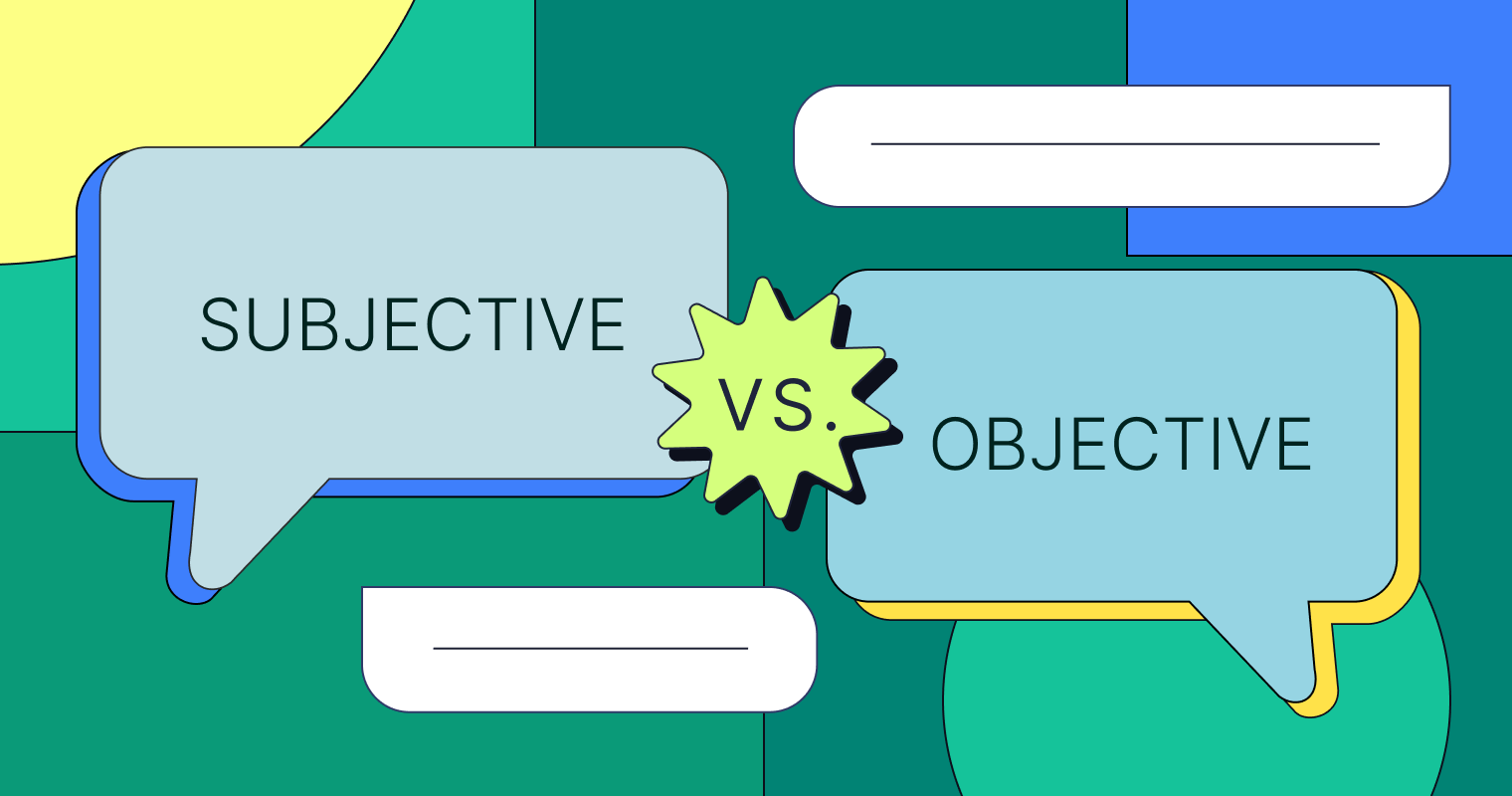Currently Empty: $0.00

In the world of information and decision-making, the concepts of objective and subjective play crucial roles. Whether you are discussing art, science, or everyday choices, understanding the difference between objective and subjective perspectives can significantly impact your perspective. In this blog post, we’ll delve deep into the objective vs. subjective debate, exploring their definitions, differences, and real-world applications.
Table of Contents
Objective and subjective are two fundamental concepts that shape our understanding of the world around us. These terms often come into play when we evaluate information, make choices, or express our opinions. Let’s start by defining these terms and exploring their differences.
Objective: The Factual Approach
Objective information is based on facts, data, and observable reality. It is not influenced by personal feelings, interpretations, or biases. Objective information is often quantifiable and can be verified by multiple people. It strives to present an accurate and unbiased representation of reality.
Examples of Objective Information
- The boiling point of water at sea level is 100 degrees Celsius (212 degrees Fahrenheit).
- The Earth orbits the Sun, completing one orbit in approximately 365.25 days.
- The chemical formula for water is H₂O, composed of two hydrogen atoms and one oxygen atom.
Subjective: The Personal Perspective
Subjective information, on the other hand, is influenced by personal feelings, opinions, interpretations, and biases. It reflects an individual’s unique perspective and cannot be independently verified. Subjective information is often qualitative and based on emotions or personal experiences.
Examples of Subjective Opinions
- “Chocolate ice cream is the best flavor.”
- “I found the movie ‘Inception’ to be confusing and thought-provoking.”
- “The sunset over the ocean was the most beautiful thing I’ve ever seen.”
Objective vs. Subjective in Everyday Life
In our daily lives, we encounter both objective and subjective information regularly. Here’s how these concepts play out in various situations:
- Food Preferences: When someone says, “Pizza is objectively the best food,” they are expressing a subjective opinion. Taste in food is highly subjective and varies from person to person.
- Product Reviews: Online product reviews often mix objective information (specifications, features) with subjective opinions (user experiences, preferences). Consumers rely on both to make informed decisions.
- Weather Reports: Weather forecasts provide objective data (temperature, humidity, wind speed) alongside subjective elements like weather descriptions (sunny, cloudy, rainy).
Objective vs. Subjective in Art and Creativity
Art and creativity are areas where the distinction between objective and subjective becomes particularly evident. While some aspects of art can be analyzed objectively, personal interpretations and emotions play a significant role.
- Objective Analysis: The dimensions of a painting, the type of paint used, and the artist’s technique can be objectively analyzed.
- Subjective Interpretation: The emotions evoked by a piece of art, its meaning to the viewer, and the personal connection it creates are all subjective experiences.
Objective vs. Subjective in Decision-Making
When making decisions, understanding the balance between objectivity and subjectivity is essential. Here’s how these concepts apply to decision-making:
- Objective Decisions: In financial investments, objective data such as historical performance and market trends can guide decisions.
- Subjective Decisions: Choosing a career path often involves subjective factors like personal interests, values, and passions.
The Blurred Lines: When Objectivity Meets Subjectivity
In some cases, objectivity and subjectivity can intersect. For instance, scientific research strives for objectivity but may involve subjective elements during data interpretation. It’s crucial to recognize these nuances to make well-informed decisions.
Conclusion
Understanding the difference between objective and subjective perspectives is vital in navigating the complexities of our world. Both have their place and value, whether you’re analyzing data, expressing opinions, or making decisions. Striking the right balance between objectivity and subjectivity can lead to better-informed choices and a deeper appreciation of the diverse perspectives that shape our lives.
Frequently Asked Questions (FAQs)
- What is the primary difference between objective and subjective information?
Objective information is based on facts and can be verified independently, while subjective information is influenced by personal feelings and opinions and cannot be independently verified. - Can something be both objective and subjective?
Yes, in some cases, elements of both objectivity and subjectivity can coexist, especially in fields like scientific research or art interpretation. - How can I make more objective decisions in my personal life?
To make more objective decisions, gather and analyze relevant data, consider multiple perspectives, and minimize the influence of personal biases and emotions. - Why is it important to understand the difference between objective and subjective?Understanding these concepts helps individuals make more informed choices, communicate effectively, and appreciate the diversity of perspectives in various aspects of life.

